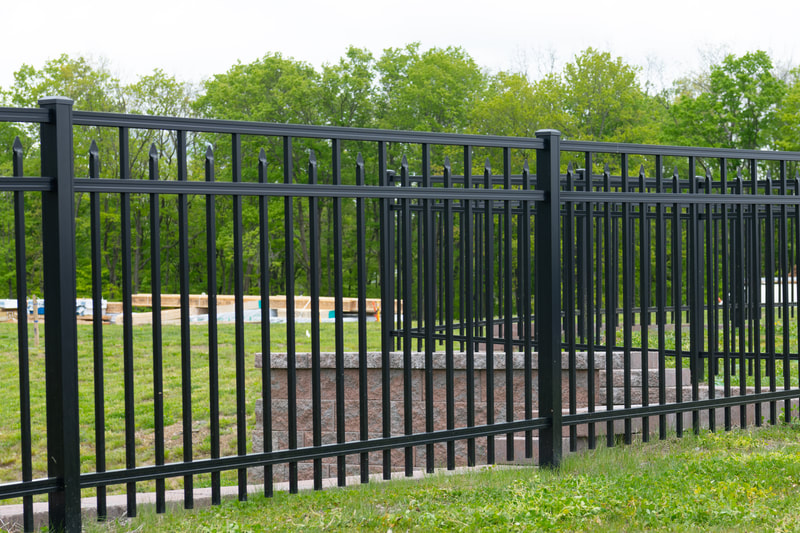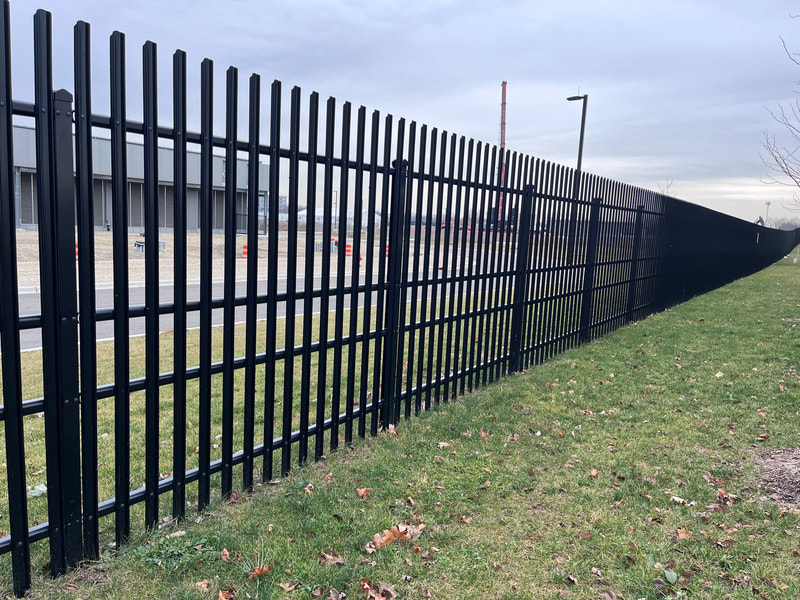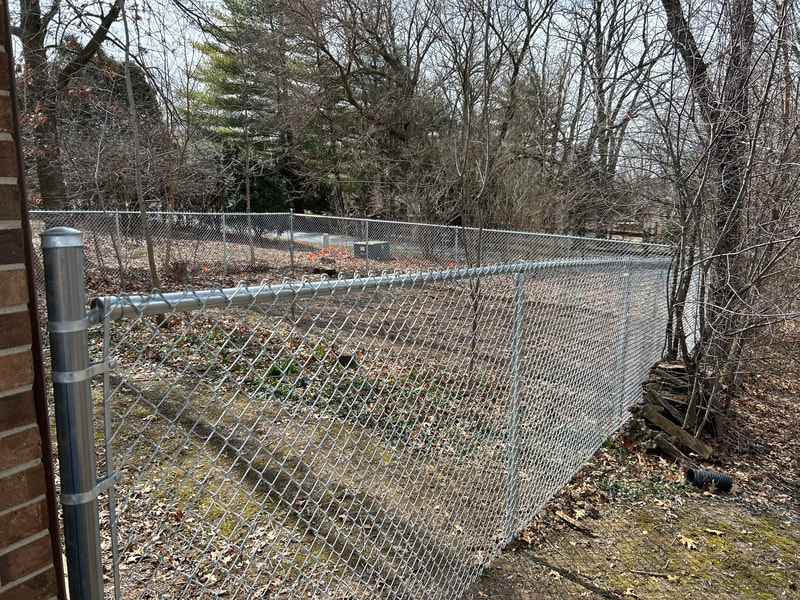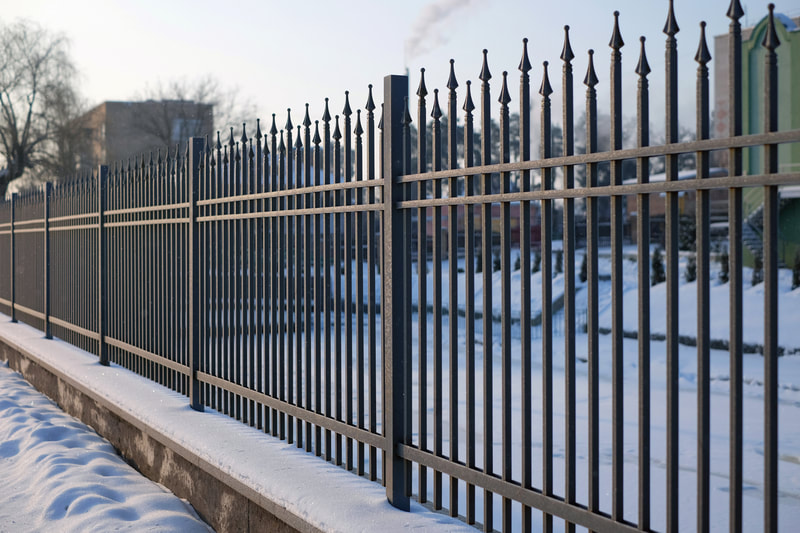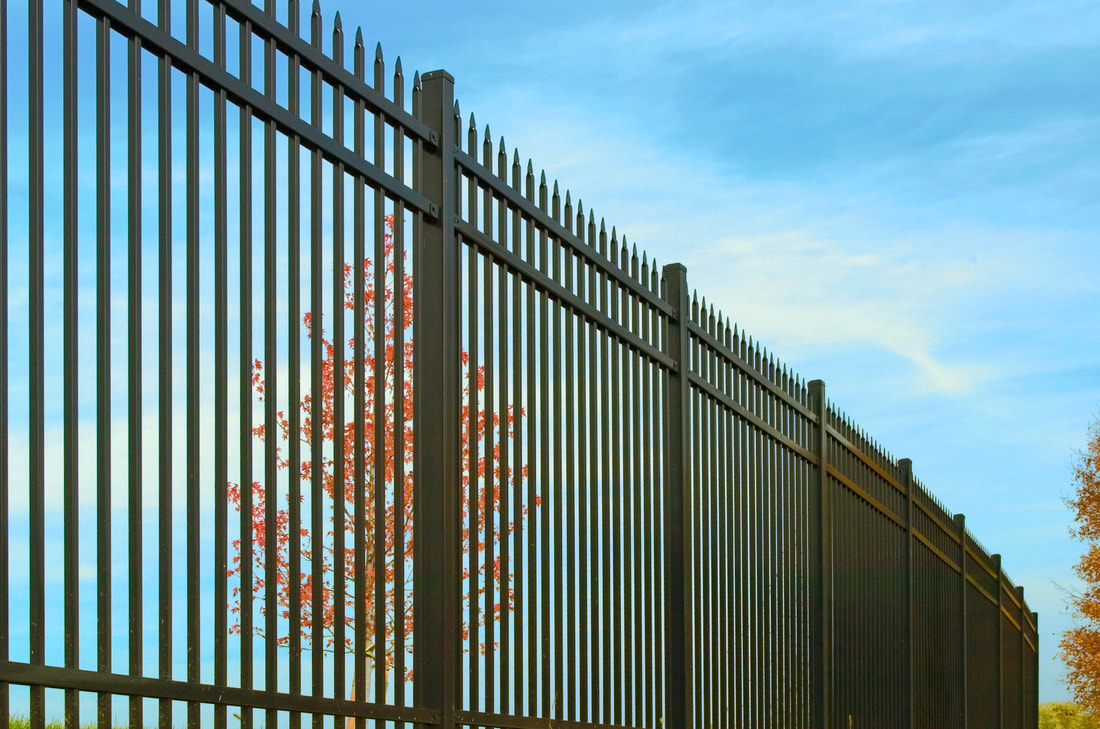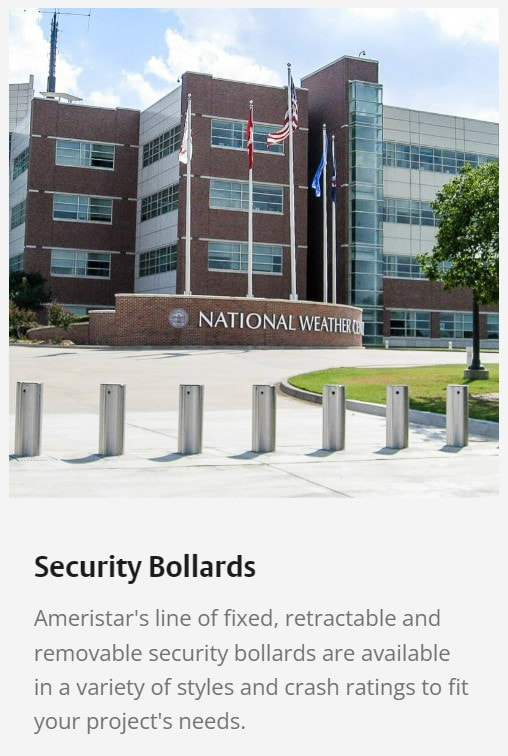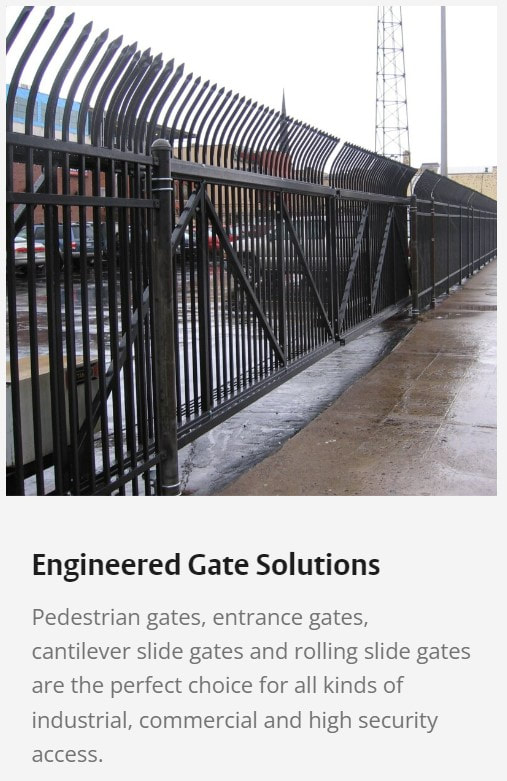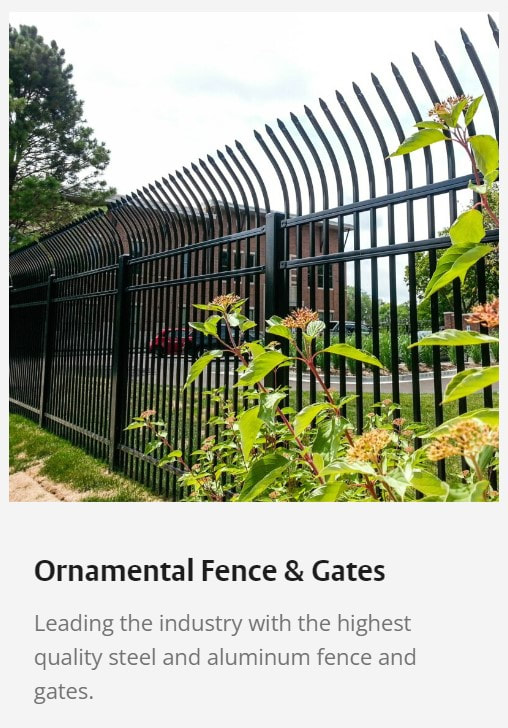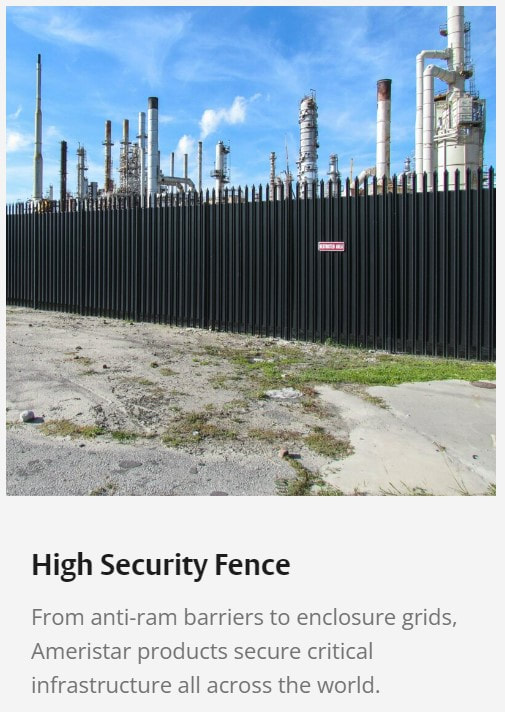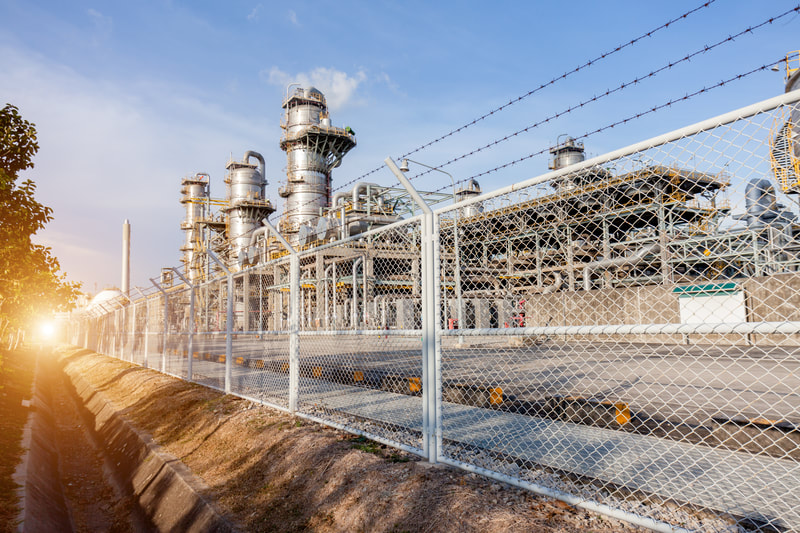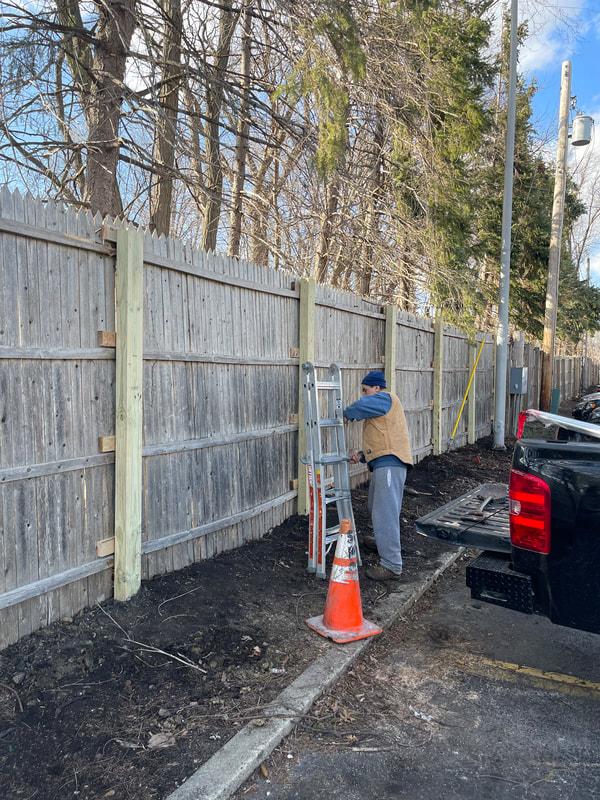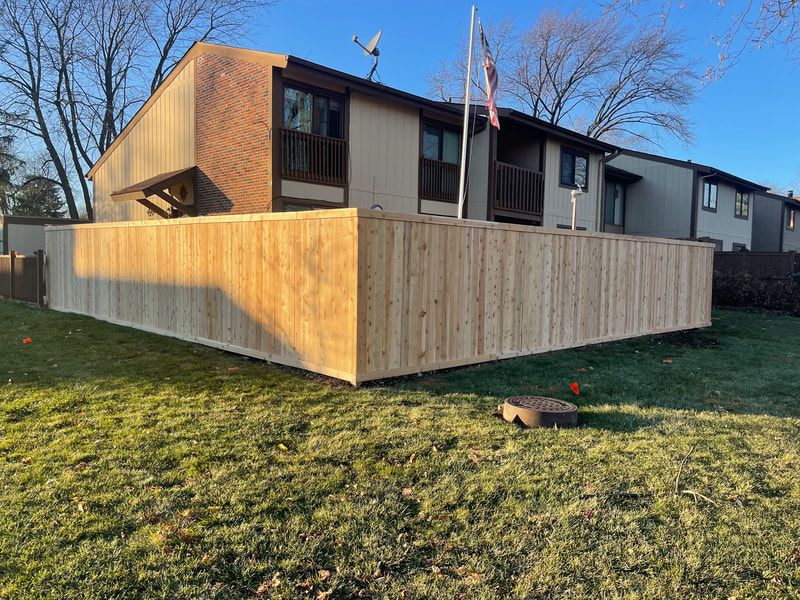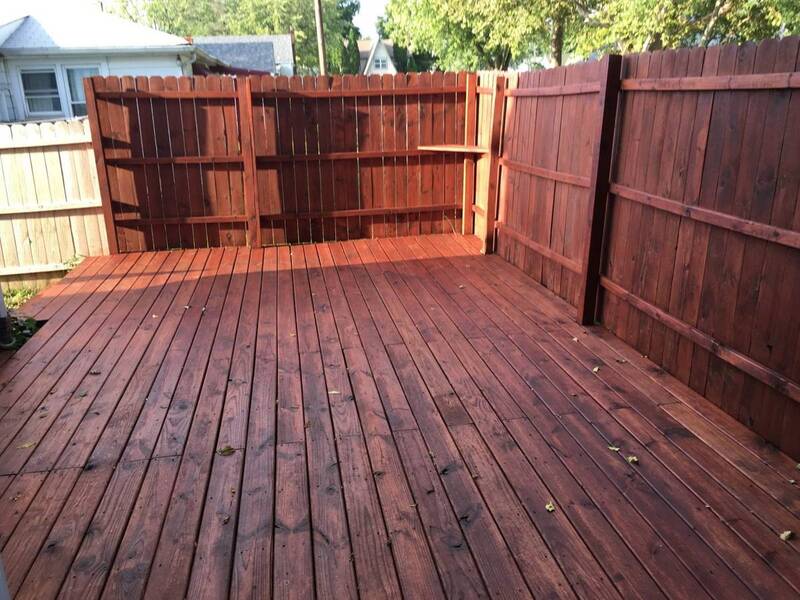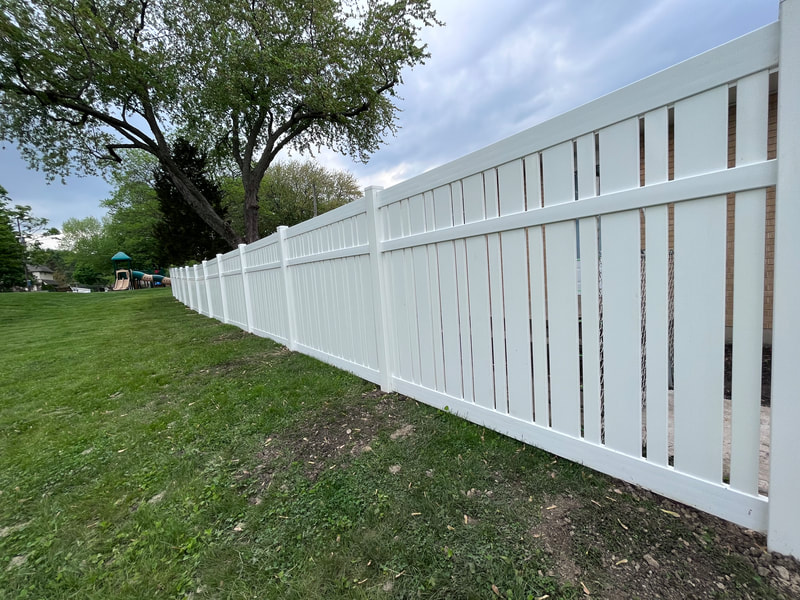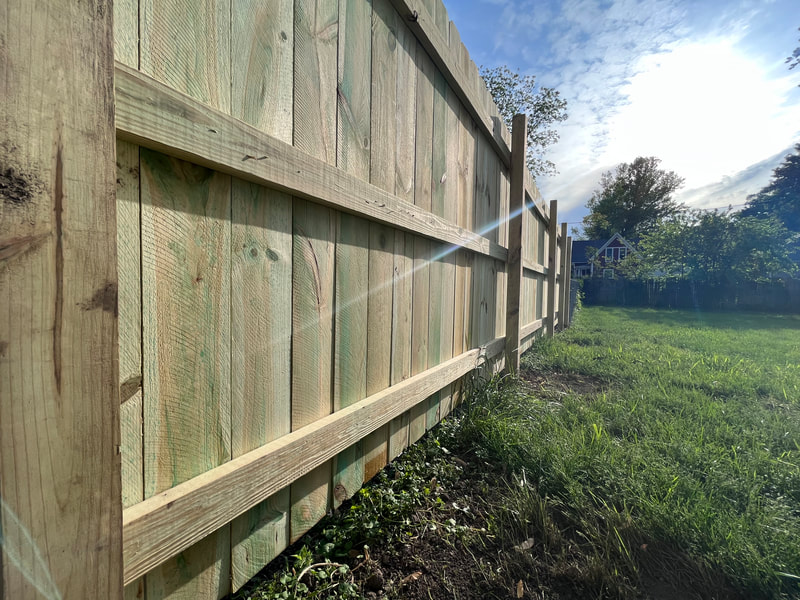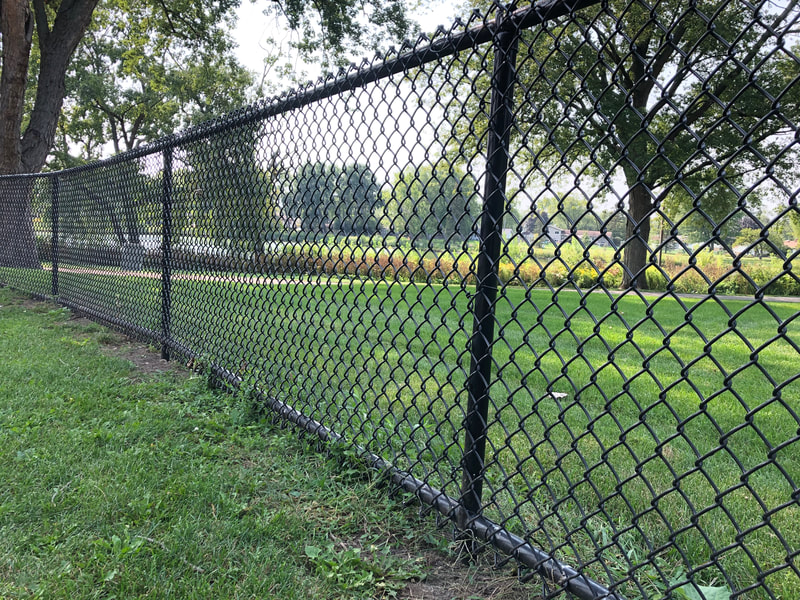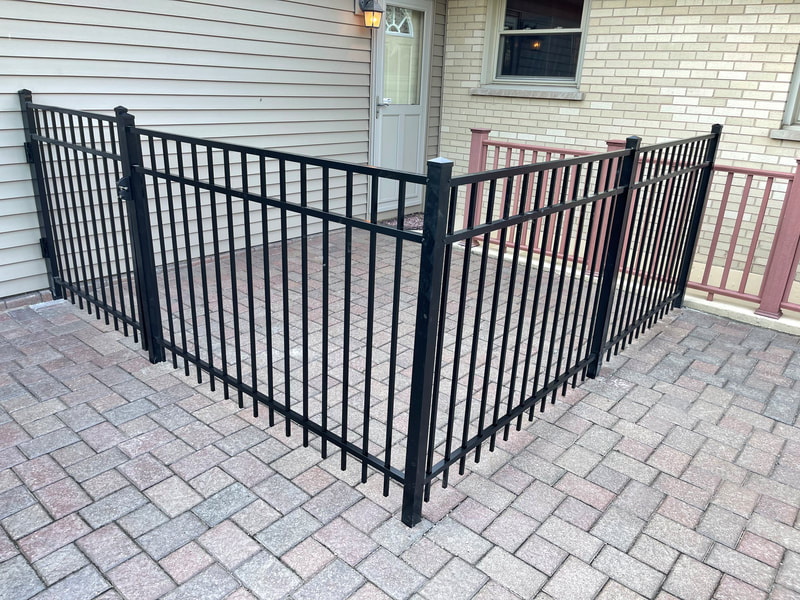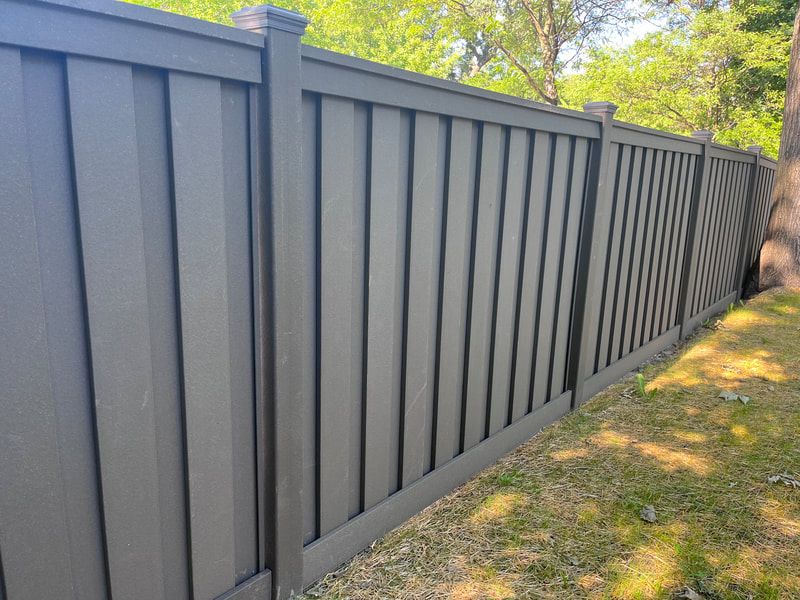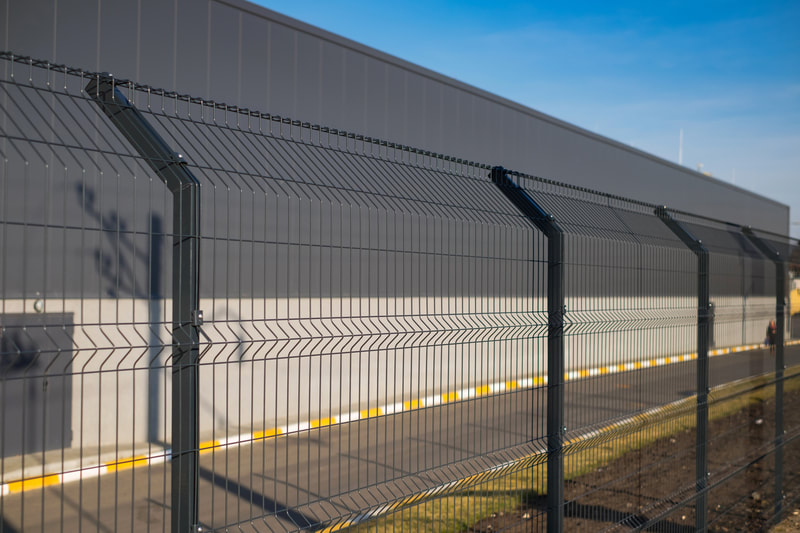Metal Fence Installation
|
Metal Fence Company Illinois
Metal fences, known for their durability and versatility, are a significant component of modern landscaping and architecture. They offer a combination of strength, security, and aesthetic appeal, making them a popular choice for both residential and commercial properties. Durability and Strength One of the foremost advantages of metal fences is their durability. Made from materials like steel, aluminum, or wrought iron, these fences are designed to withstand harsh weather conditions, including extreme temperatures, heavy rains, and strong winds. Steel fences, often galvanized or coated with protective layers, resist rust and corrosion, ensuring longevity. Aluminum fences, while lighter, provide durability without the risk of rust, making them suitable for coastal areas. Security Features Metal fences are often chosen for their security benefits. The strength of materials like wrought iron makes these fences difficult to breach, providing an effective deterrent to intruders. The design can be customized to include pointed tops or other features that further enhance security. For high-security areas, additional elements like barbed wire or electric security systems can be integrated. Aesthetic Appeal and Design Flexibility Metal fences offer a wide range of design options, making them versatile for various architectural styles. Wrought iron fences, with their classic and elegant design, are often used for historical or high-end properties. Their intricate patterns and designs add a touch of sophistication. On the other hand, aluminum and steel fences can be crafted into contemporary designs, fitting modern architectural styles with clean lines and minimalistic aesthetics. Maintenance and Cost-Effectiveness Compared to other fencing materials like wood, metal fences require relatively low maintenance. Occasional cleaning and inspection for any signs of damage or rust are typically sufficient to keep them in good condition. This low maintenance requirement, combined with the long lifespan of metal fences, makes them a cost-effective option in the long run. Metal fence installation in the Chicagoland area of Illinois is a process that encompasses several key steps and considerations, tailored to the region's unique climate, urban architecture, and local regulations. The popularity of metal fences in Chicago is partly due to their durability, which is essential in a city known for harsh winters and windy conditions.
|
Wait! Before you book, please ensure you understand the costs associated to a fence installation. Your time is valuable, please use our fence calculator prior to our visit! |
Metal Fence
Understanding Local Climate and Material Selection
Chicago's climate is characterized by cold, snowy winters and hot, humid summers. This necessitates choosing materials that can withstand temperature fluctuations and resist corrosion. Aluminum and galvanized steel are popular choices in Chicagoland due to their rust-resistant properties. Wrought iron, while more susceptible to rust, is often chosen for its classic aesthetic and strength, provided it is properly treated and maintained.
Compliance with Local Regulations and HOA Rules
Before installation begins, it is crucial to understand local building codes and homeowners' association (HOA) regulations, which may dictate fence height, style, and placement. In Chicago, permits are typically required for fence installations, and the process involves submitting detailed plans to the city's building department for approval. Compliance with these regulations ensures legal installation and avoids potential fines.
Professional Installation vs. DIY
While DIY installation of certain types of metal fences, like those with pre-assembled panels, is possible, professional installation is recommended, especially for more complex designs like wrought iron. Professional installers in Chicagoland are familiar with the regional specifics, ensuring that the installation is robust enough to handle Chicago's weather. They can also navigate local regulations efficiently.
Site Preparation and Installation Process
Site preparation is a critical step in the installation process. In Chicagoland, this often involves clearing the area of debris, ensuring the ground is level, and marking utility lines to avoid damage. The installation process then typically follows these steps:
Post-installation, maintenance is key to prolong the lifespan of a metal fence in Chicago. Regular inspections for rust, especially after winter, and prompt touch-ups with rust-inhibiting paint are important. Clearing snow away from the fence can also prevent moisture-related damage.
Choosing the Right Contractor
Selecting a reputable contractor is vital for a successful installation. It's advisable to choose contractors with experience in the Chicagoland area, as they will be familiar with local weather challenges and legal requirements. They should also provide a clear contract detailing the scope of work, materials, timeline, and costs.
Customization Options
Customization is a significant advantage of metal fences, allowing homeowners to choose designs that complement their property's architecture and personal style. In a city as architecturally diverse as Chicago, options range from modern, minimalist designs to ornate, traditional styles.
Metal Fence Company Illinois
In summary, installing a metal fence in Chicagoland requires careful planning and consideration of local conditions. From selecting the right materials to navigating local regulations and handling the installation, each step is crucial for a durable, compliant, and aesthetically pleasing fence. With the right approach and professional assistance, a metal fence in Chicago can provide security, privacy, and enhance the property's value and appearance for many years.
ALUMINUM VERSUS STEEL VERSUS IRON
This is a common question, and its important to understand the differences between these 3 fence materials. They are often confused with one another, but are not the same.
Aluminum Fence: Lightweight, doesn't rust, not strong (hollow and not dense)
Steel Fence: Heavy, strong, hard to work with, can rust over time, more expensive.
Wrought Iron Fence: Heavy, Strong, hard to work with, susceptible to rust, most expensive.
You have to weigh both the pros and cons of each material and what your ultimate goals are. If you are looking for cheap and long lastime, aluminum fencing is the best choice. If you are looking for more decorative and strong, steel or wrought iron might be a better option.
Its important to consider that wrought iron fence material must be custom welded together and also installed by a skilled craftsman. This plays into the overall increased cost. It will last a lifetime but it comes at a higher price.
Chicago's climate is characterized by cold, snowy winters and hot, humid summers. This necessitates choosing materials that can withstand temperature fluctuations and resist corrosion. Aluminum and galvanized steel are popular choices in Chicagoland due to their rust-resistant properties. Wrought iron, while more susceptible to rust, is often chosen for its classic aesthetic and strength, provided it is properly treated and maintained.
Compliance with Local Regulations and HOA Rules
Before installation begins, it is crucial to understand local building codes and homeowners' association (HOA) regulations, which may dictate fence height, style, and placement. In Chicago, permits are typically required for fence installations, and the process involves submitting detailed plans to the city's building department for approval. Compliance with these regulations ensures legal installation and avoids potential fines.
Professional Installation vs. DIY
While DIY installation of certain types of metal fences, like those with pre-assembled panels, is possible, professional installation is recommended, especially for more complex designs like wrought iron. Professional installers in Chicagoland are familiar with the regional specifics, ensuring that the installation is robust enough to handle Chicago's weather. They can also navigate local regulations efficiently.
Site Preparation and Installation Process
Site preparation is a critical step in the installation process. In Chicagoland, this often involves clearing the area of debris, ensuring the ground is level, and marking utility lines to avoid damage. The installation process then typically follows these steps:
- Layout and Measurement: Accurate measurement of the property lines is crucial to ensure the fence is installed within the legal boundaries. This includes marking the locations for posts and gates.
- Post Installation: Posts are the foundation of a metal fence and must be installed correctly to ensure stability. In Chicago, this often means digging post holes below the frost line to prevent shifting during freeze-thaw cycles. Concrete is typically used to secure the posts.
- Panel Attachment: Once the posts are set, metal panels or individual rails and pickets are attached. The method depends on the type of fence; some systems use brackets, while others may require welding, especially for wrought iron fences.
- Finishing Touches: This includes the installation of gates, application of protective coatings (especially important in Chicago's climate), and any decorative elements.
Post-installation, maintenance is key to prolong the lifespan of a metal fence in Chicago. Regular inspections for rust, especially after winter, and prompt touch-ups with rust-inhibiting paint are important. Clearing snow away from the fence can also prevent moisture-related damage.
Choosing the Right Contractor
Selecting a reputable contractor is vital for a successful installation. It's advisable to choose contractors with experience in the Chicagoland area, as they will be familiar with local weather challenges and legal requirements. They should also provide a clear contract detailing the scope of work, materials, timeline, and costs.
Customization Options
Customization is a significant advantage of metal fences, allowing homeowners to choose designs that complement their property's architecture and personal style. In a city as architecturally diverse as Chicago, options range from modern, minimalist designs to ornate, traditional styles.
Metal Fence Company Illinois
In summary, installing a metal fence in Chicagoland requires careful planning and consideration of local conditions. From selecting the right materials to navigating local regulations and handling the installation, each step is crucial for a durable, compliant, and aesthetically pleasing fence. With the right approach and professional assistance, a metal fence in Chicago can provide security, privacy, and enhance the property's value and appearance for many years.
ALUMINUM VERSUS STEEL VERSUS IRON
This is a common question, and its important to understand the differences between these 3 fence materials. They are often confused with one another, but are not the same.
Aluminum Fence: Lightweight, doesn't rust, not strong (hollow and not dense)
Steel Fence: Heavy, strong, hard to work with, can rust over time, more expensive.
Wrought Iron Fence: Heavy, Strong, hard to work with, susceptible to rust, most expensive.
You have to weigh both the pros and cons of each material and what your ultimate goals are. If you are looking for cheap and long lastime, aluminum fencing is the best choice. If you are looking for more decorative and strong, steel or wrought iron might be a better option.
Its important to consider that wrought iron fence material must be custom welded together and also installed by a skilled craftsman. This plays into the overall increased cost. It will last a lifetime but it comes at a higher price.
Ornamental Steel Fencing
Steel Fencing Increases the Value of Your Home at a Low Cost
When the time comes to sell your house, if you have a steel fence, potential buyers will be more receptive. Steel fences, with their traditional designs, offer curb appeal to a property due to its sleek aspect, improved security, and attractive appearance.
Steel fencing is a fantastic investment for your house due to its low cost in comparison to other forms of fencing. Steel fences offer the same benefits as other metal fence types (security, privacy, and beauty), but for a fraction of the price per foot.
Steel fencing is generally between $45 and $55 per foot, but alternative materials, such as wrought iron or aluminum, can cost in the range per foot.
Along with the greater initial cost, wrought iron and steel fences require additional upkeep due to their inability to withstand the elements like aluminum. Consider repainting your fence every two years to keep it rust-free. That is simply inconvenient!
There is a trade-off between aluminum and steel fencing - strength versus corrosion resistance.
Steel Fencing Provides Additional Security
While many individuals believe that steel fences prioritize form above utility, this is not the case. Steel fence may help create a more secure yard since it can be customized to fit individual demands.
Unlike chain link fences, steel fences are resistant to cutting, making them an ideal choice for anyone looking to safeguard their property.
Steel fence is much more resistant to attackers than chain link fencing. Depending on your demands, you may choose a style that provides more or less security. For instance, several metal fence designs come in a variety of heights and rung densities. If you want extra protection, select a higher metal fence with more rungs. It'll help keep items and people out of your yard that you don't want, and it'll help keep the things you do want in!
Commercial Metal Fencing
Steel fencing is ideal for commercial applications. It comes in spear top design and deters intruders over commercial chain link. It cannot be cut easily and has a stronger design.
Security Bollards are a great way to deter vehicular traffic from entering the property. A security concrete and steel bollard consists of a casing and is filled with concrete with a footing. It can stop a vehicle in its tracks.
Automatic security gates are commonly installed with steel fencing as it is an excellent way to automate your fencing as well as add additional security. Keep in mind that automated gate solutions are generally in the $40-50k range PER driveway.
Click the links below to learn more about our commercial, industrial, and security fence solutions.
When the time comes to sell your house, if you have a steel fence, potential buyers will be more receptive. Steel fences, with their traditional designs, offer curb appeal to a property due to its sleek aspect, improved security, and attractive appearance.
Steel fencing is a fantastic investment for your house due to its low cost in comparison to other forms of fencing. Steel fences offer the same benefits as other metal fence types (security, privacy, and beauty), but for a fraction of the price per foot.
Steel fencing is generally between $45 and $55 per foot, but alternative materials, such as wrought iron or aluminum, can cost in the range per foot.
Along with the greater initial cost, wrought iron and steel fences require additional upkeep due to their inability to withstand the elements like aluminum. Consider repainting your fence every two years to keep it rust-free. That is simply inconvenient!
There is a trade-off between aluminum and steel fencing - strength versus corrosion resistance.
Steel Fencing Provides Additional Security
While many individuals believe that steel fences prioritize form above utility, this is not the case. Steel fence may help create a more secure yard since it can be customized to fit individual demands.
Unlike chain link fences, steel fences are resistant to cutting, making them an ideal choice for anyone looking to safeguard their property.
Steel fence is much more resistant to attackers than chain link fencing. Depending on your demands, you may choose a style that provides more or less security. For instance, several metal fence designs come in a variety of heights and rung densities. If you want extra protection, select a higher metal fence with more rungs. It'll help keep items and people out of your yard that you don't want, and it'll help keep the things you do want in!
Commercial Metal Fencing
Steel fencing is ideal for commercial applications. It comes in spear top design and deters intruders over commercial chain link. It cannot be cut easily and has a stronger design.
Security Bollards are a great way to deter vehicular traffic from entering the property. A security concrete and steel bollard consists of a casing and is filled with concrete with a footing. It can stop a vehicle in its tracks.
Automatic security gates are commonly installed with steel fencing as it is an excellent way to automate your fencing as well as add additional security. Keep in mind that automated gate solutions are generally in the $40-50k range PER driveway.
Click the links below to learn more about our commercial, industrial, and security fence solutions.
Steel Fence Resources
We primarily use Ameristar steel fence products. To download the full spec sheet on their steel fence options click here.
To learn more about Ameristar Security Fence Products click here.
To learn more about Ameristar Security Fence Products click here.

